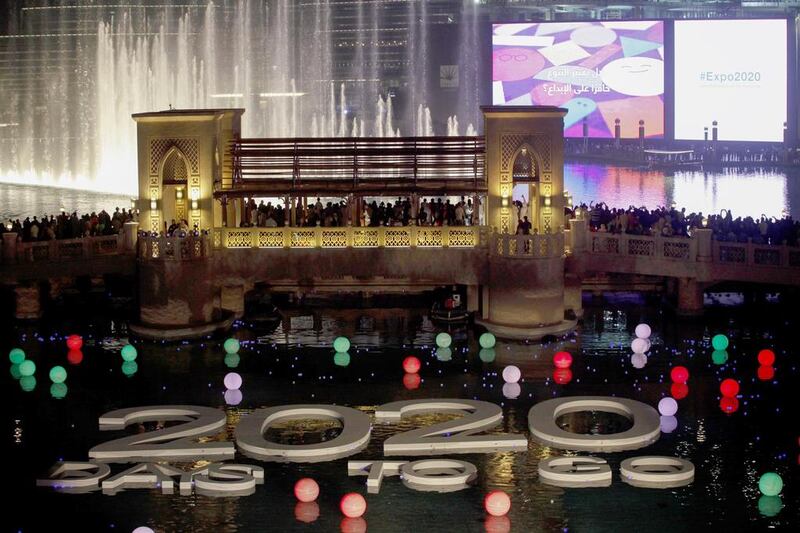Dubai’s rate of economic growth will exceed China’s in 2020, as the Expo lifts tourism and business activity in the emirate, officials say.
The prediction from the Dubai Department of Economic Development envisages a growth rate of 6.6 per cent for the emirate in 2020 – faster than China at 6.33 per cent.
“In the lead-up to the Expo, Dubai’s economy is actually going to overtake China’s,” said Raed Safadi, director of economic research and policy at the DDED.
For that to happen, “by 2020, Dubai has to be the world’s most business-friendly city, and its preferred investment destination”, Mr Safadi said at the UAE Economic Outlook Forum in Abu Dhabi on Tuesday.
“I hope I will be around then, and you can tell me that I was right,” he added.
Tourism, hospitality and logistics are set to be Dubai’s fastest growing industries in 2016, the department predicts.
This growth will be powered by Expo 2020, an exhibition that stretches over several months, which is set to add US$24 billion to Dubai’s GDP and 227,000 jobs to the emirate, according to Minister of State Reem Al Hashimy, who is also managing director of the Dubai Expo 2020 Higher Committee.
An HSBC report published on Tuesday said that UAE trade will grow faster than any other state in the Gulf – even though the country has taken a hit as oil prices fall. The UAE has spent heavily on infrastructure projects including Jebel Ali port, and Dubai South, a trade hub centred on Al Maktoum International Airport.
Economic growth in the UAE will be fuelled by “investment in the non-oil sector to increase in importance in the long-term, especially in sectors such as industry, air and maritime transport”, HSBC said in its report.
Chinese growth is slowing as the country moves away from fuelling expansion with massive state-backed investment projects, funded by laws requiring savers to deposit funds in state banks and an explosion of shadow banking debt.
Many analysts believe Chinese growth forecasts are overstated, with unofficial data sources suggesting that the end of China’s real estate bubble and a recent stock market collapse point to a dramatic slowdown in growth prospects.
London-based Capital Economics believes that China is growing at 4.5 per cent per year – considerably slower than official figures, which place growth close to 7 per cent.
Chinese exports fell 6.8 per cent in the year to November, according to official statistics, indicating that conditions are worsening for Chinese exporters even after a devaluation that should have made Chinese goods more competitive.
Imports fell by 8.7 per cent over the same period, indicating that Chinese consumer demand has slowed.
So with the Dubai economy expected to grow by about 4 per cent this year, the emirate could overtake China simply as a result of China’s slowdown.
However, economists pointed out that direct comparisons of growth rates do not mean very much. With a GDP of about $85 billion, Dubai’s economy is about the same size as Slovenia’s, while China’s economy, at around $10 trillion, is more than 100 larger.
If Dubai is grows at 6.6 per cent, its economy expands by a few billion dollars; if China grows at 6.3 per cent, its economy expands by hundreds of billions of dollars.
“Nobody thinks that GDP growth rates are, by themselves, a good measure of welfare,” said Andrew Scott, professor of economics at London Business School.
abouyamourn@thenational.ae





